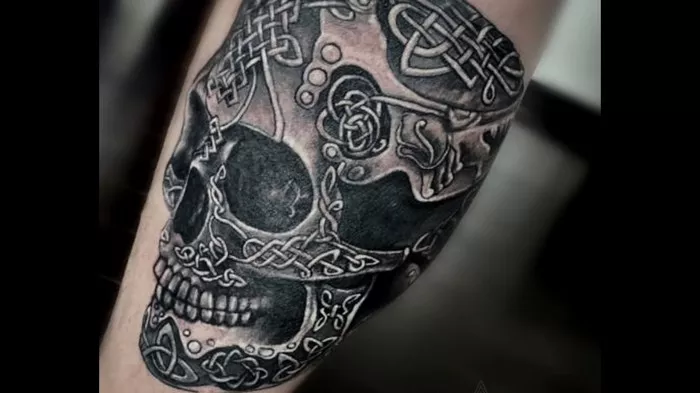In the vast and intricate world of body art, few styles possess the enduring allure and cultural depth of Celtic tattoos. These mesmerizing designs, characterized by intricate knotwork, swirling patterns, and symbolic imagery, have captured the imagination of countless individuals worldwide. But what lies behind the captivating beauty of Celtic tattoos? To truly appreciate their significance, we must embark on a journey through the annals of history, tracing the origins of these ancient symbols and unraveling the stories they tell.
The Ancient Celts: Keepers of Tradition
The story of Celtic tattoos begins with the ancient Celts, a group of tribes who flourished in Europe from around 1200 BCE to the first centuries CE. These enigmatic peoples inhabited a vast expanse of territory, stretching from the British Isles to the Iberian Peninsula, and from Gaul (modern-day France) to Anatolia (modern-day Turkey). United by a shared language, cultural practices, and spiritual beliefs, the Celts left an indelible mark on the landscape of Europe, both literally and figuratively.
The Art of Tattooing: An Ancient Tradition
Tattooing is a practice as old as humanity itself, with evidence of its existence dating back thousands of years. Among the ancient Celts, tattooing held deep cultural significance, serving as a means of expressing identity, social status, and spiritual beliefs. While the exact origins of Celtic tattooing are shrouded in the mists of time, archaeological evidence suggests that the Celts inherited the practice from their predecessors and adapted it to suit their own unique cultural context.
Pictish Enigmas: Clues from the Past
One of the most intriguing sources of evidence regarding the origins of Celtic tattoos comes from the enigmatic symbols carved into the stones of ancient Pictish monuments. The Picts, a mysterious people who inhabited what is now Scotland, left behind a legacy of intricate stone carvings adorned with symbols that bear striking similarities to later Celtic artwork. These symbols, which include spirals, knots, and animal motifs, offer tantalizing clues to the interconnectedness of Celtic and Pictish cultures and hint at the shared artistic traditions that flourished in ancient Britain.
Symbolism and Meaning: Unlocking the Secrets of Celtic Art
At the heart of Celtic tattoos lies a rich tapestry of symbolism, with each motif carrying its own unique significance. The spiral, for example, is a timeless symbol of growth, transformation, and the cyclical nature of life, while the intricate knots found in Celtic designs are thought to represent interconnectedness, eternity, and the eternal cycle of life, death, and rebirth. Animals such as the stag, the wolf, and the raven are also common motifs in Celtic artwork, each imbued with its own symbolic meaning drawn from Celtic mythology and folklore.
Celtic Mythology: Stories in Stone and Ink
To truly understand the origins of Celtic tattoos, we must delve into the rich tapestry of Celtic mythology, where gods and goddesses, heroes and monsters, weave tales of magic and mystery. Trees such as the mighty oak and the sacred yew held a special significance for the Celts, serving as symbols of strength, wisdom, and the interconnectedness of all life. Animals such as the stag, the wolf, and the raven were also revered in Celtic mythology, embodying qualities of courage, cunning, and spiritual insight.
The Legacy of the Celts: Modern Interpretations
While the ancient Celts may have faded into the mists of time, their legacy lives on in the enduring appeal of Celtic tattoos. In modern times, these intricate designs have experienced a resurgence in popularity, as people from all walks of life seek to reconnect with their Celtic roots or simply admire the timeless beauty of Celtic artistry. Today, Celtic tattoos can be found adorning the bodies of people around the world, serving as a testament to the enduring legacy of the Celts and the timeless power of human creativity.
Conclusion
In conclusion, the origin of Celtic tattoos is a story woven from the threads of ancient history, cultural exchange, and artistic expression. From the enigmatic symbols of the Picts to the timeless elegance of Celtic knotwork, these intricate designs continue to fascinate and inspire, serving as a testament to the enduring legacy of the Celts and the timeless power of human creativity. As we adorn our bodies with these ancient symbols, we pay homage to the rich cultural heritage of the Celtic peoples and ensure that their stories will continue to be told for generations to come.

